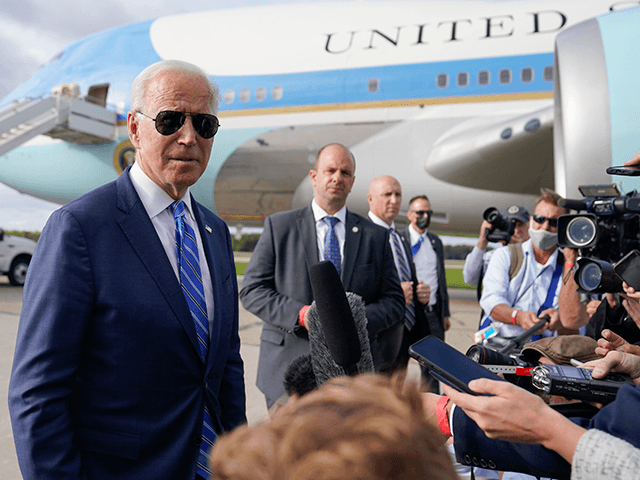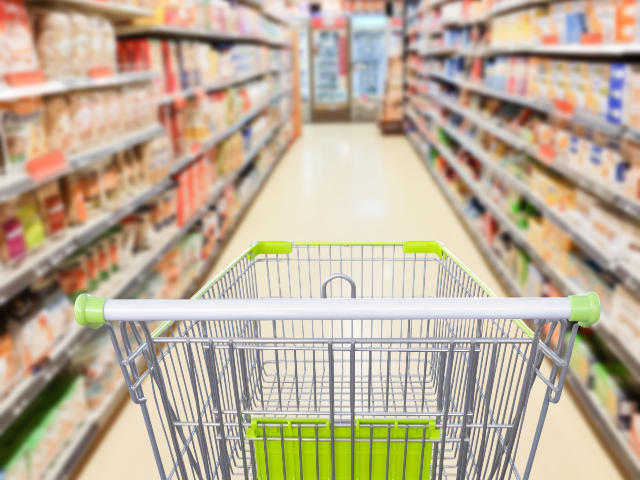President Biden’s inflation is reportedly costing average American households an extra $175 per month.
“For households earning the U.S. median annual income of about $70,000, the current inflation rate has forced them to spend another $175 a month on food, fuel and housing,” chief economist at Moody’s Analytics Mark Zandi told the New York Post.
“That’s the equivalent of a full grocery, electric or cellphone bill,” Zandi added.

President Joe Biden speaks to members of the media before boarding Air Force One at Capital Region International Airport, Tuesday, Oct. 5, 2021, in Lansing, Mich. (AP Photo/Evan Vucci)
Gordon Haskett analyst Chuck Grom also told the Post prices will continue to rise throughout 2022.
“Price increases will continue until the middle of next year,” Grom predicted, noting PepsiCo’s Tuesday statement that prices for the company’s beverages and food items will increase at the beginning of 2022.
“A 10-ounce bag of Lay’s potato chips — Frito-Lay is owned by PepsiCo — cost $3.75 in August, 50 cents more than a year earlier at Dollar General stores in the Southwest,” Grom explained.
The Post reported there are an additional amount of companies raising their prices:
The prices of other items have also ratcheted up at the discount chain, including a dozen 12-ounce Coca-Cola cans that cost $5.75 in August — 50 cents more than in 2020 — at its Southwest stores, and a half a gallon of 2 percent store-brand milk that now costs $4.49, 74 cents more than a year earlier, according to Grom. At Family Dollar stores in the Northeast, the 12-pack of Coke cost $6.90 in August, up $1.50, and a can of Folger’s coffee costs 85 cents more, $8.80, he found.
In the Big Apple, grocery chains Gristedes and D’Agostino’s have increased prices by as much as 15 percent on chicken wings and beef, 10 percent on milk and 5 percent on eggs, while non-food-related items have gone up by about 10 percent, according to owner John Catsimatidis.
In August, inflation increased 5.3 percent compared to 2020 when Donald Trump was president. The increase is reportedly due to supply-chain issues, which means items are not easily passing through nerve points along their way to consumers. For instance, the Post reports there are “70 cargo ships waiting to dock at the Port of Los Angeles.”

LOS ANGELES, CALIFORNIA – SEPTEMBER 20: In an aerial view, container ships are anchored by the ports of Long Beach and Los Angeles as they wait to offload on September 20, 2021 near Los Angeles, California. (Photo by Mario Tama/Getty Images)
Another challenge has been a trucker shortage. Without drivers, many of the items American families depend on remain undelivered to points of purchase for consumers. The driver shortage can impact the scarcity of everyday items such as electronics and food.
The situation has been compounded by Democrat-controlled states paying people not to work through large unemployment checks. These checks are in addition to federal government unemployment checks. As a result, many unemployed individuals do not see the sense of returning to work while they are hauling in more money from unemployment than they would by working on honest job.
Follow Wendell Husebø on Twitter @WendellHusebø

COMMENTS
Please let us know if you're having issues with commenting.